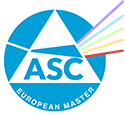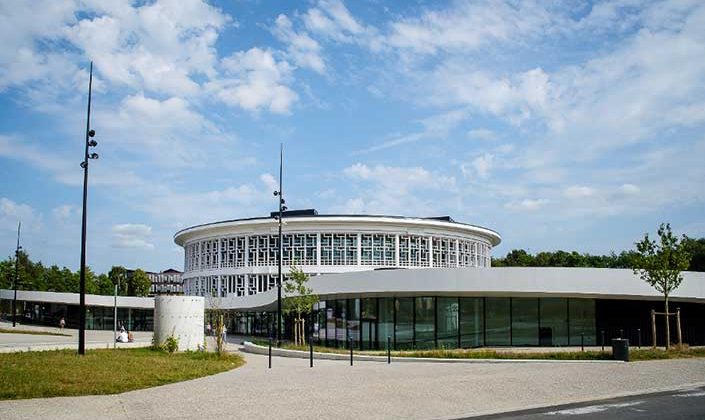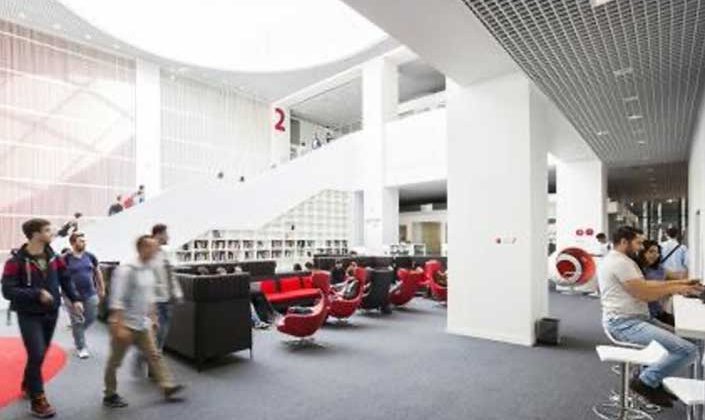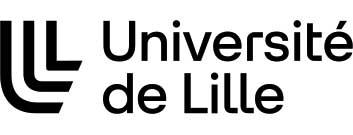A FEW FIGURES
- 78000 students
- 9900 international students
- 3000 researchers and research professors
- 1800 doctorates
- 24 degrees taught in English
- 66 laboratories
- 24 faculties
- 3 campuses
The University of Lille is a multi-disciplinary university of Excellency based in the north of Europe. The University can count on an exceptional cultural and scientific patrimony inscribed in the Hauts de France region.
The University of Lille is one of the main actor in the region in terms of formation, research and innovation.
Over the past years, the University of Lille has increasingly placed its international outlook at the heart of its administration, academic programmes and research. As the laureate in 2017 of a vast national program to fund academic excellence (I-SITE), the University of Lille is committed to organizing its international programmes around selected research strands, international student recruitment methods and high-quality international partnerships.
STRUCTURED, HIGH LEVEL RESEARCH
The University of Lille houses 66 laboratories and research units covering all fields of study. The quality of its research has been widely recognized on the national level through the awarding of prestigious labels and funding: an I-SITE project, seven research facilities of excellence (EQUIPEX) and five laboratories of excellence (LABEX).
The university’s many research groups, networks and facilities contribute to effective multidisciplinary research, as well as to its valorisation via socio economic partnerships. These projects include an integrated cancer research site (SiricOncolille), an institute for energy transition (ITE) and a technology transfer group (SATT). The university belongs to a network including five technology parks and seven competitiveness clusters, which allows businesses and laboratories to collaborate on innovation in cutting-edge sectors.
The University of Lille has high-level research facilities covering a wide range of fields, information and technology sciences and health sciences (molecular and cellular imaging, biotherapy, genomics, proteomics and bioinformatics, promotion of clinical knowledge development, medical imaging and visual sciences and cultures).
Research is also supported by joint research services, in physico-chemistry centre for analysis, the department of nuclear magnetic resonance (NMR) and the department of mass spectrometry and of cytometry and cell sorting.
PATNERS AND NETWORKS
The university’s international ambition is put into practice through institutional networks and agreements, particularly within the European Universities Association(EUA), Agence universitaire de la Francophonie (AUF),Institut des Amériques, the French-Dutch Network and Campus France, an organization established by the French government to promote French higher education abroad. It is also a member of several international student exchange programmes: the International Student ExchangePrograms (around 60 different countries), the France-Quebec Inter university Cooperation Office, the Erasmus +programme. It also collaborates with institutions in other countries through numerous bilateral agreements. It has also established structured partnerships with several consortia of universities.
RESEARCH AND ENVIRONMENT
ULille has 1,400 PhD students yearly working with the 44 research laboratories on campus, two-thirds of which are supported by the State CNRS. Areas of excellence include Electronics; Engineering and Computer Science, Materials, Bio production, Optics and Chemistry. City, Space and Society are mainly handled by economists. Research at ULille is supported by a Regional and the National Committee (French Ministry of research and the CNRS) and also by European Research Development projects. Some laboratories develop a European strategy by creating “joint European laboratories”.
DEPARTMENT OF CHEMISTRY
The Department of Chemistry (87 Academic Staff-researchers, 62 engineers, administrative staff, technicians) develops a wide variety of activities of formation and research, part of which is at the interface with biology and physics. It consists of six CNRS quality accredited laboratories whose themes of research cover all specialities of the discipline (Catalysis, Organic and Macromolecular Chemistry, Solid State chemistry, Metallurgy and Materials, Combustion Processes, Infrared and Raman Spectrochemistry ); plus a group accredited by the French Ministry of National Education (Processes of Fluid -Materials Interactions) and two groups interacting with the Biology and Earth Sciences departments. Contact networks with the regional/national industry as well as numerous national and international research collaborations are developing upon our scientific community competencies.
The department of Chemistry is strongly implied in the FST (Faculty of Science and Technology)’s offer of formation fitting the European Bologna scheme by delivering first cycle degrees i.e. Licences in « Sciences and Technologies » (5 options :Chemistry, Physics-Chemistry, Physical sciences and Mathematics, Biochemistry, Professional Licence), and second cycle degrees i.e. Master « Sciences de la Matière » (5 specialities ) ; Master Environment ; Master Measures, Instrumentation and Processes ; Master Biology and Biotechnologies. At the doctoral level, top quality equipments are available on campus and cover the research fields of the above described groups. A wide variety of courses is proposed and designed to make our department a pole of attractivity for future students and researchers in chemistry.
Advanced Spectroscopy is already at work in most of the described research groups, i.e. with a “home designed” Raman microprobe and other spectrometers developed by the Dilor company; a platform of single crystal diffractometers, plus a set of powder X ray diffractometers running data from –150°C up to +1200 °C; a unique NMR facility including a 800MHz new unit monitored by a world wide known methodology developer; complex impedance spectroscopy for the characterisation of ionic conductors such as the BIMEVOX family; XPS and surface spectroscopy for catalysis materials, and all types of spectroscopic equipments necessary for routine analysis in chemistry.



